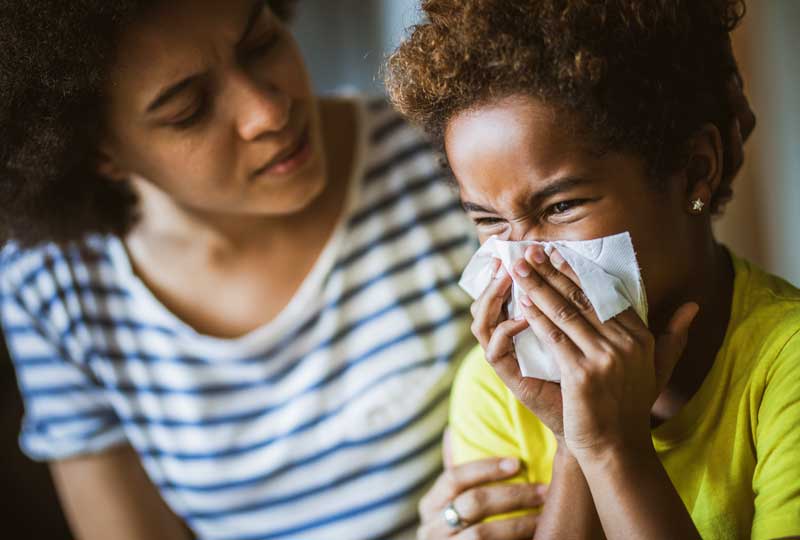All kids get colds, flu and other infections — but when should you start to worry that there’s something else going on?
If you’ve got young children, you may know all too well how often they can get sick, especially if they’re around other kids. But if your child constantly seems to be picking up colds or viruses and needing care, you may be wondering if there’s an underlying factor such as immunodeficiency.
We asked Yasmin Khan, M.D., a pediatric immunologist at Vanderbilt Children’s Allergy and Immunology Clinic, to offer guidance for parents who are worried about how often their child is getting sick.
“Most times,” Khan said, “kids ultimately grow out of it. They have a couple of years where they are getting all these viral infections and they’re sick a lot. And then eventually that gets a lot better. But there are some kids that truly do have an immune deficiency. And identifying those kids early is really helpful and important.”
How often do kids get sick?
Children 5 and under tend to get sick quite often, simply because the immune system takes time to mature as it gains exposure. “When you’re in your first year of daycare or your first year of kindergarten and you’re around all these new kids who have new viruses, it can be an important time for your immune system to receive training,” Khan said.
On average, children get one or two viral infections a month, she added. And symptoms may last up to 10 days each time. “If it’s back to back,” Khan said, “it certainly seems like kids are constantly sick, and it can be really stressful for families. They have to miss daycare, and parents have to miss work — and it is a lot.”
What are the red flags for immunodeficiency?
If your child is experiencing more serious infections, that warrants having a conversation with your pediatrician. Hospitalizations or the need for frequent or multiple courses of antibiotics within six months to a year are some red flags, Khan said.
Although kids get frequent sinus and ear infections when they’re younger, those should lessen in frequency or stop altogether when a child is in first or second grade, Khan added.
And if your child tends to get sick more frequently than their peers or siblings and also has a family history of immune problems, Khan said that could also be an indicator of an underlying condition.
Talking to your doctor
“I think if families have worries,” Khan said, “I would absolutely not hesitate to talk about it with my primary care doctor.” She recommends bringing up the concern at a well-child checkup, rather than an acute care visit, so that the physician has more time to address the issue and refer your child to a pediatric immunologist if necessary.
Treatment for potential immunodeficiency
A pediatric immunologist will ask questions about medical history and frequency of illness. Then likely the physician will perform a few tests, including a white blood cell count. “We’ll look at different parts of the immune system,” Khan explained, “to see if everything is present and accounted for.” Some children may undergo allergy testing for seasonal or year-round triggers. “Sometimes if you just treat that,” Khan said, “kids get a lot better.”
Some children who have an immunodeficiency will need monthly infusion medications, Khan explained. Others will require an ongoing low dose of antibiotics to prevent certain types of infections.
“Sometimes we end up just following that child over time to see if things are changing,” Khan said. And many children simply do stop getting sick as frequently as they grow a little older, she added.
To treat complex concerns, Vanderbilt also has a Comprehensive Hematology, Immunology, and Infectious Disease Program (CHIIP) that combines the expertise from several medical specialties. “It’s really nice for patients that do have these rare, complicated immunodeficiencies,” Khan said, “because they can see all of us together and we can work together as a team to be sure that we are addressing their medical issues from all sides.”

The Allergy and Immunology care team at Monroe Carell Jr. Children’s Hospital at Vanderbilt evaluates and treats children with all types of allergy problems, performing a thorough evaluation to determine a child’s allergies.

